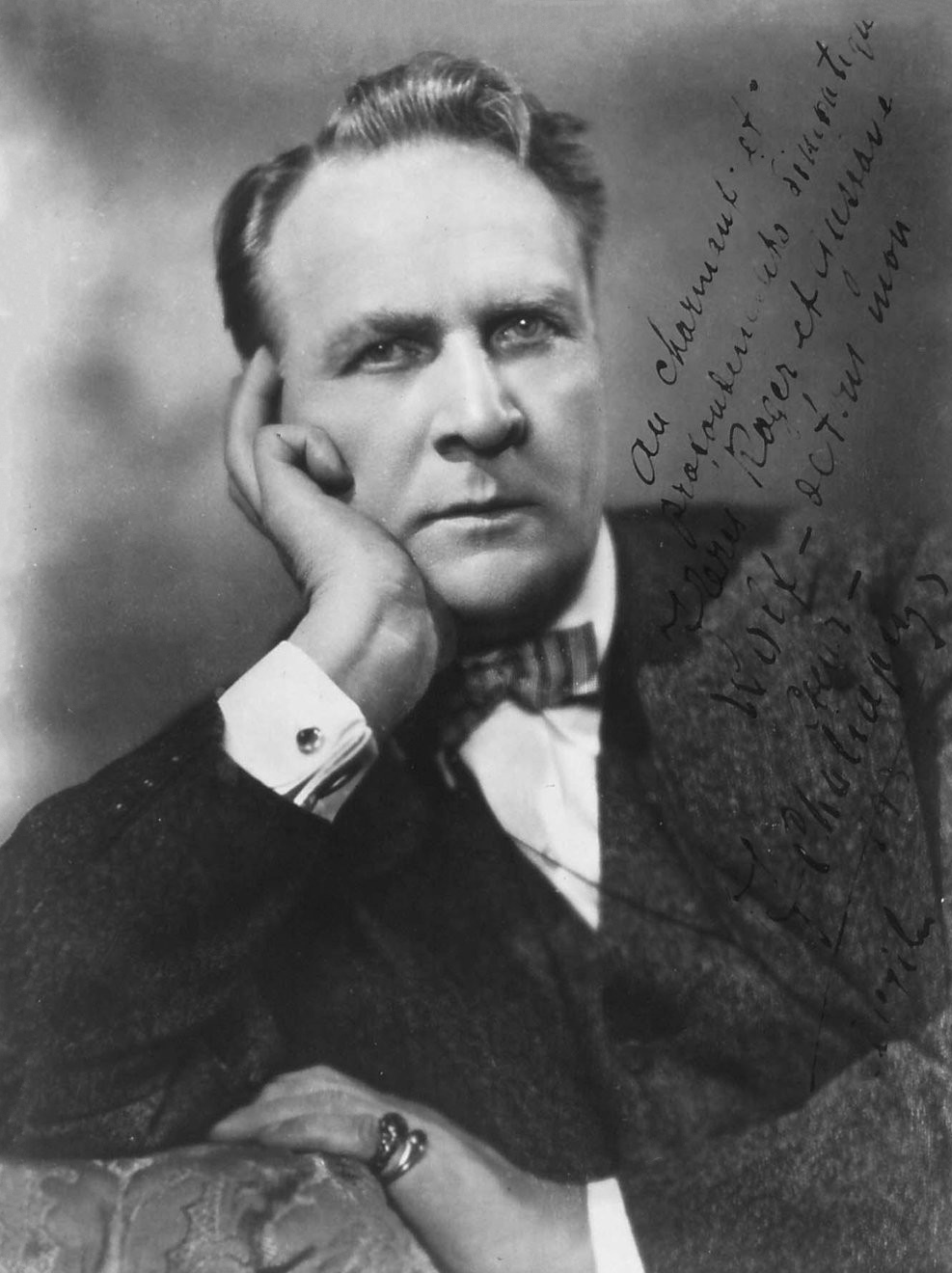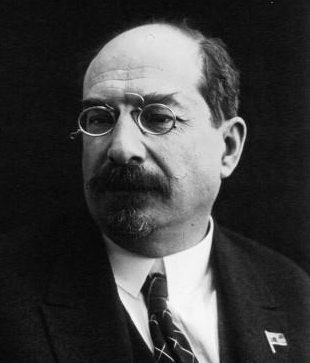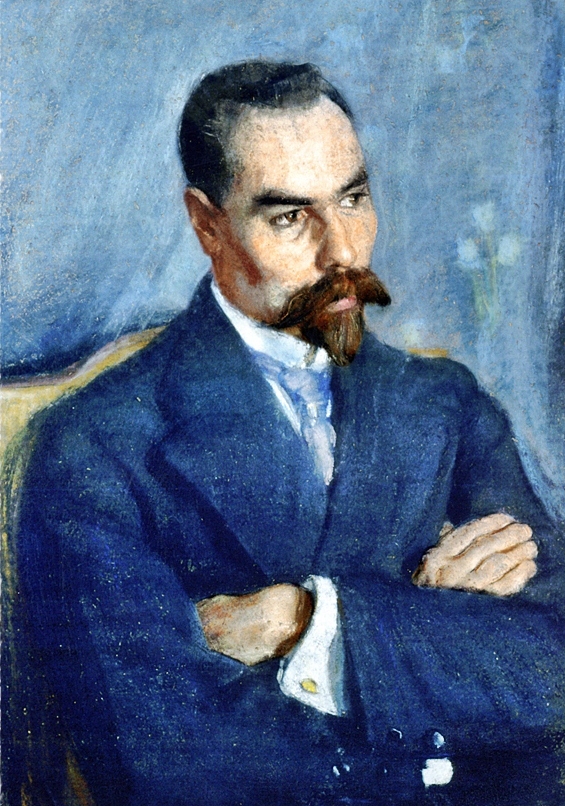|
150 000 000
''150 000 000'' (Russian: ''Sto pyat'desyat millionov'') is a poem by Vladimir Mayakovsky written in 1919–1920 and first published in April 1921 by GIZ (Gosizdat) Publishers, originally anonymously. The poem, hailing the 150-million-strong Russian people's mission in starting the world revolution (represented here as an allegorical battle of Russian Ivan and the American president Woodrow Wilson, the embodiment of the capitalist evil) failed to impress the Soviet revolutionary leader Vladimir Lenin who apparently saw in it little but a pretentious Futuristic experiment. History Mayakovsky conceived and started writing the poem in the first half of 1919 and completed it in March 1920. Among its several working titles were "The Will of the Millions" (Воля миллионов), "The Tale of Ivan" (Былина об Иване) and "Ivan The Bylina. The Revolutionary Epic" (Иван Былина. Эпос революции). On 5 March 1920 Mayakovsky recited fragments of the poe ... [...More Info...] [...Related Items...] OR: [Wikipedia] [Google] [Baidu] |
WikiProject Novels
A WikiProject, or Wikiproject, is a Wikimedia movement affinity group for contributors with shared goals. WikiProjects are prevalent within the largest wiki, Wikipedia, and exist to varying degrees within sister projects such as Wiktionary, Wikiquote, Wikidata, and Wikisource. They also exist in different languages, and translation of articles is a form of their collaboration. During the COVID-19 pandemic, CBS News noted the role of Wikipedia's WikiProject Medicine in maintaining the accuracy of articles related to the disease. Another WikiProject that has drawn attention is WikiProject Women Scientists, which was profiled by '' Smithsonian'' for its efforts to improve coverage of women scientists which the profile noted had "helped increase the number of female scientists on Wikipedia from around 1,600 to over 5,000". On Wikipedia Some Wikipedia WikiProjects are substantial enough to engage in cooperative activities with outside organizations relevant to the field at issue. For e ... [...More Info...] [...Related Items...] OR: [Wikipedia] [Google] [Baidu] |
Russian Futurism
Russian Futurism is the broad term for a movement of Russian poets and artists who adopted the principles of Filippo Marinetti's "Manifesto of Futurism," which espoused the rejection of the past, and a celebration of speed, machinery, violence, youth, industry, destruction of academies, museums, and urbanism; it also advocated the modernization and cultural rejuvenation. Russian Futurism began roughly in the early 1910s; in 1912, a year after Ego-Futurism began, the literary group "Hylea" - also spelt "Guilée" and "Gylea" – issued the manifesto ''A Slap in the Face of Public Taste''. The 1912 movement was originally called Cubo-Futurism, but this term is now used to refer to the style of art produced. Russian Futurism ended shortly after the Russian Revolution of 1917, after which former Russian Futurists either left the country, or participated in the new art movements. Notable Russian Futurists included Natalia Goncharova, Mikhail Larionov, David Burliuk, Kazimir Malevic ... [...More Info...] [...Related Items...] OR: [Wikipedia] [Google] [Baidu] |
Fyodor Chalyapin
Feodor Ivanovich Chaliapin ( rus, Фёдор Ива́нович Шаля́пин, Fyodor Ivanovich Shalyapin, ˈfʲɵdər ɪˈvanəvʲɪtɕ ʂɐˈlʲapʲɪn}; April 12, 1938) was a Russian opera singer. Possessing a deep and expressive bass voice, he enjoyed an important international career at major opera houses and is often credited with establishing the tradition of naturalistic acting in his chosen art form. During the first phase of his career, Chaliapin endured direct competition from three other great basses: the powerful (1869–1942), the more lyrical (1871–1948), and Dmitri Buchtoyarov (1866–1918), whose voice was intermediate between those of Sibiriakov and Kastorsky. The fact that Chaliapin is far and away the best remembered of this magnificent quartet of rival basses is a testament to the power of his personality, the acuteness of his musical interpretations, and the vividness of his performances. Spelling note He himself spelled his surname, French-style ... [...More Info...] [...Related Items...] OR: [Wikipedia] [Google] [Baidu] |
Adelina Patti
Adelina Patti (19 February 184327 September 1919) was an Italian 19th-century opera singer, earning huge fees at the height of her career in the music capitals of Europe and America. She first sang in public as a child in 1851, and gave her last performance before an audience in 1914. Along with her near contemporaries Jenny Lind and Thérèse Tietjens, Patti remains one of the most famous sopranos in history, owing to the purity and beauty of her lyrical voice and the unmatched quality of her ''bel canto'' technique. The composer Giuseppe Verdi, writing in 1877, described her as being perhaps the finest singer who had ever lived and a "stupendous artist". Verdi's admiration for Patti's talent was shared by numerous music critics and social commentators of her era. Biography She was born Adela Juana Maria Patti, in Madrid, the youngest child of tenor Salvatore Patti (1800–1869) and soprano Caterina Barilli (died 1870). Her Italian parents were working in Spain, at the time ... [...More Info...] [...Related Items...] OR: [Wikipedia] [Google] [Baidu] |
Sukharev Tower
The Sukharev Tower (Сухарева башня) was a Moscow landmark until its destruction by Soviet authorities in 1934. Tsar Peter I of Russia had the tower built in the Moscow baroque style at the intersection of the Garden Ring with Sretenka Street in 1692–1695. History Peter ordered the construction of the tower to commemorate his triumph over his half-sister Sofia in 1689, after the Streltsy uprising had been crushed. The tower received its name in honor of Lavrentii Pankrat'evich Sukharev, whose regiment of streltsy had supported Peter.Craft, William Brumfield (1993). ''A History of Russian Architecture''. Cambridge: Cambridge University Press. p. 195. Tower construction The brick tower was built from 1692 through 1701 under the direction of the architect . It was not a fortress but rather a ceremonial gateway into the city. The first floor formed an arched entrance to the city. The second floor contained guardrooms. Originally these served as barracks for Sukhar ... [...More Info...] [...Related Items...] OR: [Wikipedia] [Google] [Baidu] |
Chicago
(''City in a Garden''); I Will , image_map = , map_caption = Interactive Map of Chicago , coordinates = , coordinates_footnotes = , subdivision_type = Country , subdivision_name = United States , subdivision_type1 = State , subdivision_type2 = Counties , subdivision_name1 = Illinois , subdivision_name2 = Cook and DuPage , established_title = Settled , established_date = , established_title2 = Incorporated (city) , established_date2 = , founder = Jean Baptiste Point du Sable , government_type = Mayor–council , governing_body = Chicago City Council , leader_title = Mayor , leader_name = Lori Lightfoot ( D) , leader_title1 = City Clerk , leader_name1 = Anna Valencia ( D) , unit_pref = Imperial , area_footnotes = , area_tot ... [...More Info...] [...Related Items...] OR: [Wikipedia] [Google] [Baidu] |
Gubernia
A governorate, gubernia, province, or government ( rus, губе́рния, p=ɡʊˈbʲɛrnʲɪjə, also romanized ; uk, губернія, huberniia), was a major and principal administrative subdivision of the Russian Empire. After the empire was ended by revolution, they remained as subdivisions in Belarus, the Russian republic, Ukraine, and in the Soviet Union from its formation until 1929. The term is also translated as ''government'', '' governorate'', or ''province''. A governorate was ruled by a governor (, ''gubernator''), a word borrowed from Latin , in turn from Greek . Selected governorates were united under an assigned governor general such as the Grand Duchy of Finland, Congress Poland, Russian Turkestan and others. There also were military governors such as Kronstadt, Vladivostok, and others. Aside from governorates, other types of divisions were oblasts (region) and okrugs (district). First reform This subdivision type was created by the edict (ukase) of Pete ... [...More Info...] [...Related Items...] OR: [Wikipedia] [Google] [Baidu] |
Ivan Defeats Wilson
Ivan () is a Slavic male given name, connected with the variant of the Greek name (English: John) from Hebrew meaning 'God is gracious'. It is associated worldwide with Slavic countries. The earliest person known to bear the name was Bulgarian tsar Ivan Vladislav. It is very popular in Russia, Ukraine, Croatia, Serbia, Bosnia and Herzegovina, Slovenia, Bulgaria, Belarus, North Macedonia, and Montenegro and has also become more popular in Romance-speaking countries since the 20th century. Etymology Ivan is the common Slavic Latin spelling, while Cyrillic spelling is two-fold: in Bulgarian, Russian, Macedonian, Serbian and Montenegrin it is Иван, while in Belarusian and Ukrainian it is Іван. The Old Church Slavonic (or Old Cyrillic) spelling is . It is the Slavic relative of the Latin name , corresponding to English ''John''. This Slavic version of the name originates from New Testament Greek (''Iōánnēs'') rather than from the Latin . The Greek name is in tur ... [...More Info...] [...Related Items...] OR: [Wikipedia] [Google] [Baidu] |
Ministry Of Education (Soviet Union)
The Ministry of Education of the Union of Soviet Socialist Republics (USSR) (russian: Министерство просвещения СССР), formed on 3 August 1966, was one of the most important government offices in the Soviet Union. It was known as the People's Commissariat for Education (russian: Народный комиссариат просвещения), or Narkompros, until 1946. Narkompros was a Soviet agency founded by the State Commission on Education (russian: Государственная комиссия по просвещению) and charged with the administration of public education and most of other issues related to culture. Its first head was Anatoly Lunacharsky. However he described Nadezhda Krupskaya as the "soul of Narkompros". Mikhail Pokrovsky and Evgraf Litkens also played important roles. Lunacharsky protected most of the avant-garde artists such as Vladimir Mayakovsky, Kazimir Malevich, Vladimir Tatlin and Vsevolod Meyerhold. Despite his effo ... [...More Info...] [...Related Items...] OR: [Wikipedia] [Google] [Baidu] |
Valery Bryusov
Valery Yakovlevich Bryusov ( rus, Вале́рий Я́ковлевич Брю́сов, p=vɐˈlʲerʲɪj ˈjakəvlʲɪvʲɪdʑ ˈbrʲusəf, a=Valyeriy Yakovlyevich Bryusov.ru.vorb.oga; – 9 October 1924) was a Russian poet, prose writer, dramatist, translator, critic and historian. He was one of the principal members of the Russian Symbolism, Russian Symbolist movement.Darko Suvin, "Bryusov,Valery" in Curtis C. Smith, ''Twentieth-Century Science-Fiction Writers''. Chicago, St. James, 1986. (pp. 840–41). Background Valery Bryusov was born on 13 December 1873 (1 December 1873 according to the old Julian calendar) into a merchant's family in Moscow. His parents were educated for their class and had some literary associations, but had little do with his upbringing, leaving the boy largely to himself. He spent a great deal of time reading "everything that fell into [his] hands", including the works of Charles Darwin and Jules Verne, as well as various materialism , material ... [...More Info...] [...Related Items...] OR: [Wikipedia] [Google] [Baidu] |
Lunacharsky
Anatoly Vasilyevich Lunacharsky (russian: Анато́лий Васи́льевич Лунача́рский) (born Anatoly Aleksandrovich Antonov, – 26 December 1933) was a Russian Marxist revolutionary and the first Bolshevik Soviet People's Commissar (Narkompros) responsible for Ministry of Education as well as an active playwright, critic, essayist and journalist throughout his career. Background Lunacharsky was born on 23 or 24 November 1875 in Poltava, Ukraine (then part of the Russian Empire) as the illegitimate child of Alexander Antonov and Alexandra Lunacharskaya, née Rostovtseva. His mother was then married to statesman Vasily Lunacharsky, a nobleman of Polish origin, whence Anatoly's surname and patronym. She later divorced Vasily Lunacharsky and married Antonov, but Anatoly kept his former name. In 1890, at the age of 15, Lunacharsky became a Marxist. From 1894, he studied at the University of Zurich under Richard Avenarius for two years without taking a deg ... [...More Info...] [...Related Items...] OR: [Wikipedia] [Google] [Baidu] |
Lenin And Lunacharsky Inspect The Guard Of Honor, 1920
Vladimir Ilyich Ulyanov. ( 1870 – 21 January 1924), better known as Vladimir Lenin,. was a Russian revolutionary, politician, and political theorist. He served as the first and founding head of government of Soviet Russia from 1917 to 1924 and of the Soviet Union from 1922 to 1924. Under his administration, Russia, and later the Soviet Union, became a one-party socialist state governed by the Communist Party. Ideologically a Marxist, his developments to the ideology are called Leninism. Born to an upper-middle-class family in Simbirsk, Lenin embraced revolutionary socialist politics following his brother's 1887 execution. Expelled from Kazan Imperial University for participating in protests against the Russian Empire's Tsarist government, he devoted the following years to a law degree. He moved to Saint Petersburg in 1893 and became a senior Marxist activist. In 1897, he was arrested for sedition and exiled to Shushenskoye in Siberia for three years, where he marri ... [...More Info...] [...Related Items...] OR: [Wikipedia] [Google] [Baidu] |



_(cropped).jpg)
.jpg)



